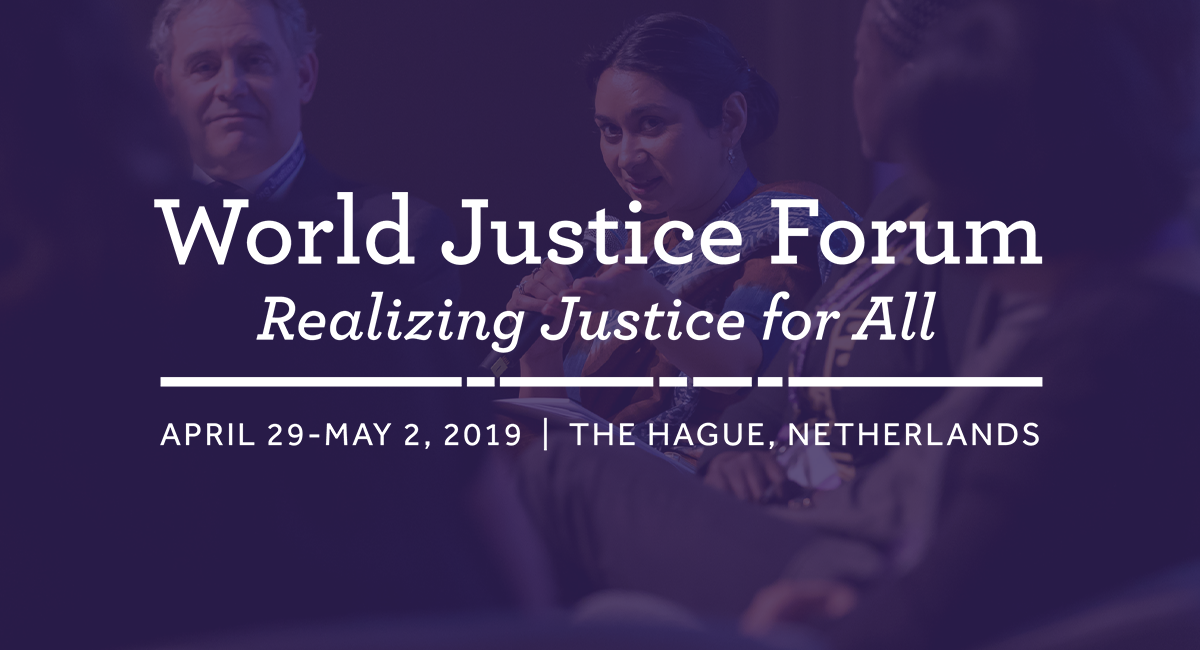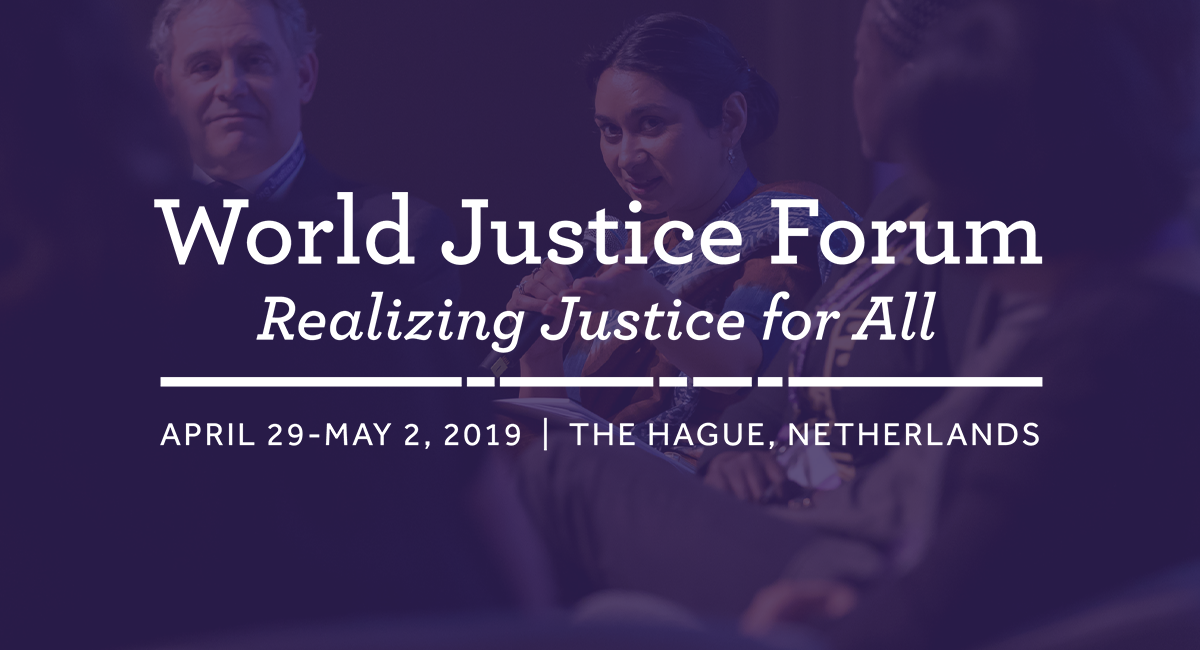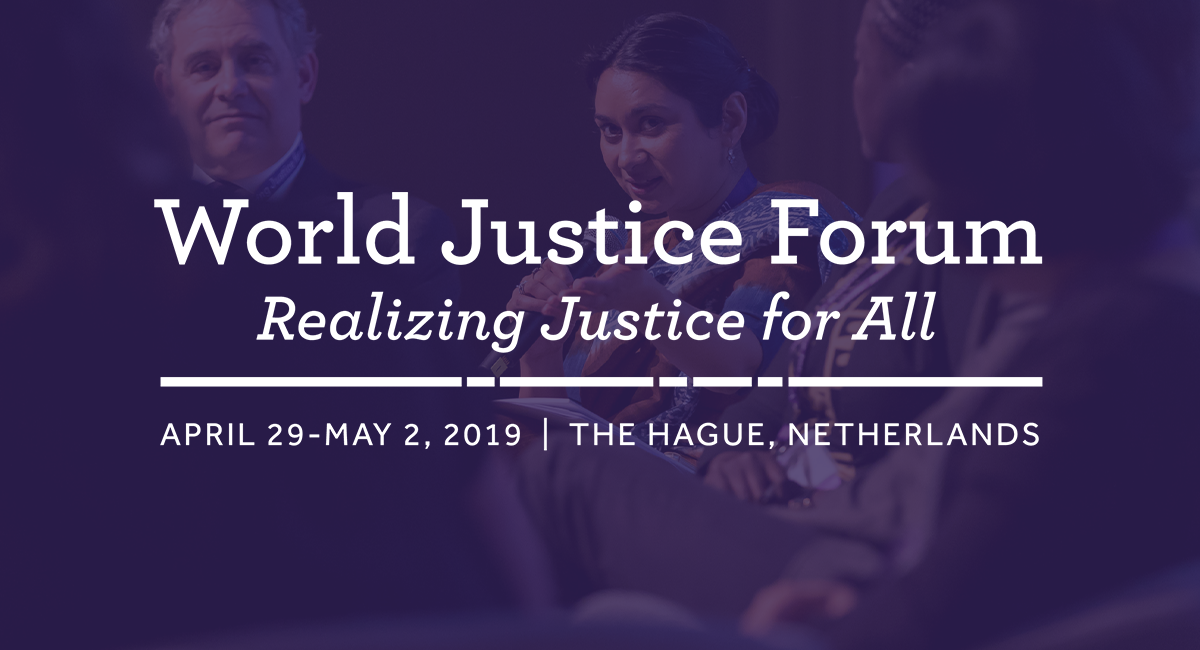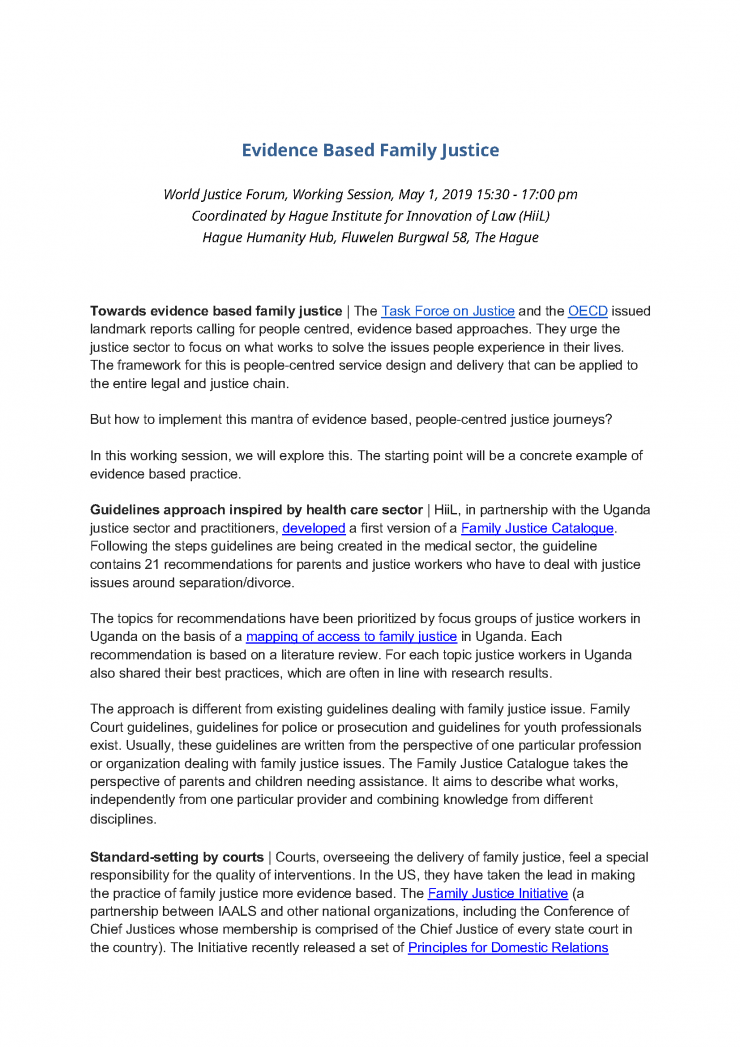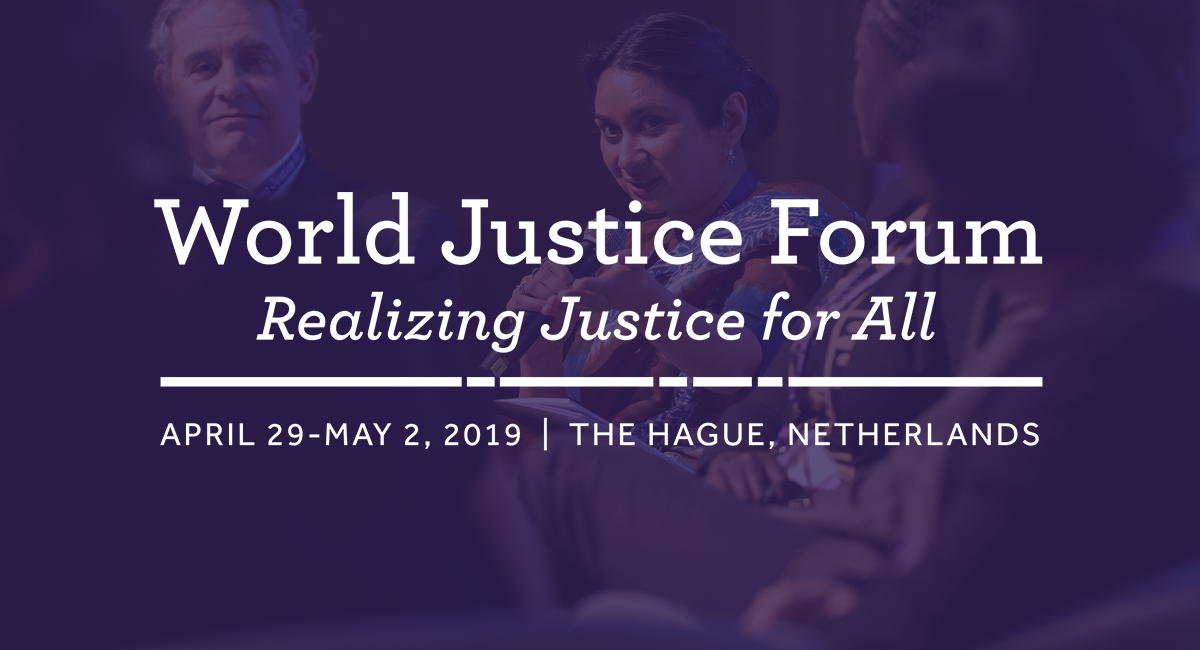This working session focused on the need for recognition of the role of community paralegals, justice advocates and independent justice service providers in realizing access to justice. It discussed policies that create enabling environments for community-based paralegals, such as effective legal aid policies, the recognition of paralegals in law, and formalized working structures. The session also discussed the necessary safeguards needed to ensure their independence and sustainability, including the need to sufficiently resource paralegal efforts. Participants debated the responsibilities, scope of work, and models of funding for community paralegals. The session highlighted recognition efforts in diverse contexts, including the importance of political recognition, and sought to clarify the relationships to, and distinctions from, other professionals in the justice sector and other related services. It offered concrete discussion of how national policies can support and promote accessibility of community-based justice providers.
Read the full summary for this working session.
Additional Resources:



